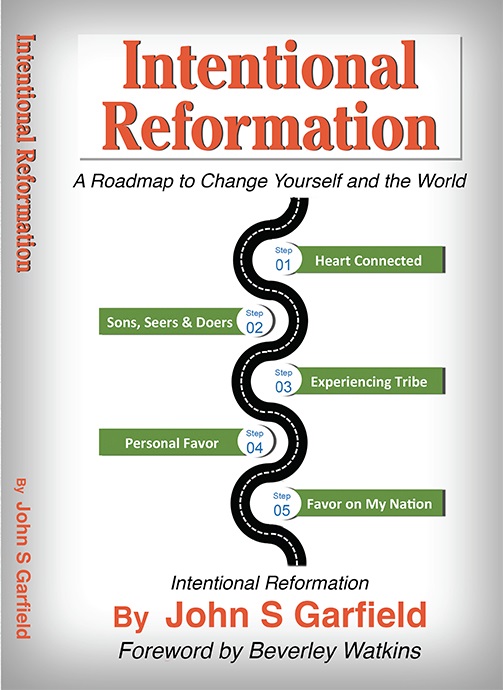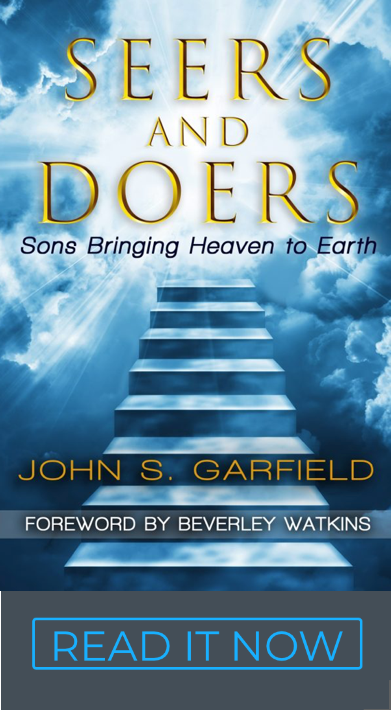Definitions – Dualism is a term that originated in Greek philosophy (Plato) and was adopted into Christianity by Augustine after the time of Christ. Dualism is a worldview that holds spiritual and natural entities as separate. Typically, dualism views the spirit world as good and physical world as evil. Although this is not a Biblical view of God’s creation, dualism did indeed survive through the centuries via Augustine, Luther and Calvin to reside, to some degree, in your and my present theology.
Dualism logically leads us toward doctrines of human depravity and original sin which in turn necessitated infant baptism (also promoted by Augustine). Since your body is in the natural it would be viewed as evil in many ways. That’s why culture viewed sex (even in marriage) in a negative light for centuries. Can you see how dualism could erode your self-worth? We might miss God’s perspective; that we are a pearl of great price, a treasure, and the riches of His glorious inheritance in the saints (Eph 2:18).
Harold wrote an excellent book entitled Escaping Dualism that we recommend. His book entitled Precious In His Sight also provides a balanced and Biblical view on the nature of man apart from the dualism worldview. We have links to both books on our recommendation page. This newsletter won’t answer all your questions, but these two books are very helpful.
Briefly, the dualism worldview can be misleading because not everything spiritual is good (demons for example). The new age movement is premised on a belief that anything spiritual is safe while the Bible specifically forbids many “spiritual activities – witchcraft, consulting the dead, etc.
Let no one be found among you who sacrifices his son or daughter in the fire, who practices divination or sorcery, interprets omens, engages in witchcraft, 11 or casts spells, or who is a medium or spiritist or who consults the dead. Deut 18:10-11 NIV
On the natural side, a belief that everything in the natural is bad, corrupt or carnal is also misleading and unscriptural. God created the earth and said it was good. He also created you in His image and that was good. Good and evil exist in the natural world, in the spiritual world, and in people; religious dualism isn’t a particularly helpful grid to discern the difference.
Consequences of Dualism – We’ve all tried to discipline ourselves to change and we’ve all shared Paul’s experience in Romans 7.
14 We know that the law is spiritual; but I am unspiritual, sold as a slave to sin. 15 I do not understand what I do. For what I want to do I do not do, but what I hate I do. 16 And if I do what I do not want to do, I agree that the law is good. 17 As it is, it is no longer I myself who do it, but it is sin living in me. 18 I know that nothing good lives in me, that is, in my sinful nature. For I have the desire to do what is good, but I cannot carry it out. 19 For what I do is not the good I want to do; no, the evil I do not want to do — this I keep on doing. 20 Now if I do what I do not want to do, it is no longer I who do it, but it is sin living in me that does it.
21 So I find this law at work: When I want to do good, evil is right there with me. 22 For in my inner being I delight in God’s law; 23 but I see another law at work in the members of my body, waging war against the law of my mind and making me a prisoner of the law of sin at work within my members. 24 What a wretched man I am! Who will rescue me from this body of death? Rom 7:14-25 NIV
I believe Paul is sharing His own transition in terms that we can all identify with. He’s describing a dualistic world view that was common in his day and in his own experience as well. Spiritual things (the law) are good; the body and its members are bad. The premise is that when we overcome our body’s sinful tendencies, we’ll please God. Unfortunately, the harder we (and Paul) try, the worse it gets. The solution isn’t a new diet, stricter discipline, or greater reverence. We have to change our theology; we have to change our understanding. Romans 8 contains the answer. We are God’s children. He loves us and fills us with His Spirit. When we make a mistake (sin), we have a redeeming intercessor (Jesus) that can restore us. Our paradigm is that we are God’s good children, washed white as snow through Jesus redemption, and heirs of the Kingdom elevated to the status of friend. Let me share a few examples to clarify this.
Heart’s desire vs. selfish ambition – Dualism leads us to believe that all of our soulish desires are carnal and that only spiritual direction from God received through our spirit is good. It’s not true. My desires must be discerned – they may be good or not so good. However, I was created in God’s image and he writes His desires on my heart (Heb 8:10). Scripturally, I would fully expect to find most of God’s will already written on my heart. As I grow in Christ it gets easier to discern good from evil, and I trust my heart more to mirror the mind of Christ, the will of God. There was a time that I releasincally resisted every desire of my own heart. Now, I expect those desires to reflect God’s own heart. I still discern them to be sure, but now my worldview is that I’m God’s friend, a player in building the Kingdom. I feel God celebrating my desires and accomplishments with me. I am naturally inclined to desire his purposes.
Wealth vs. Poverty – Dualism describes spiritual things as good; natural as bad. An atheist would gravitate toward materialism. He doesn’t believe in God or spiritual things, so his worldview is built around the present and whatever comforts he can find in this life. A theist (believer in God) would naturally place a premium on spiritual things and the afterlife, and try to distance himself from materialism. Historically the church has placed value on asceticism, monasticism, and poverty as trademarks of spirituality.
I may believe God wants me to have wealth (I’m personally convinced he does, in concert with my calling as a King). However, my faith may be mixed with my heritage in dualism. Why would my attempts at starting businesses or making investments fail? My Romans 7 experience, “try hard and get nowhere” is because my worldview has roots in a system that portrayed wealth as materialistic, unspiritual and opposed by God. On the surface I want to succeed but at a deeper level I may be subconsciously working against myself to stay poor and please God – consistent with my inherited Dualism worldview. I have to change my theology to realize that wealth, although natural, is the practical (and holy) means of conducting ministry and building the Kingdom. Plus, I’m God’s kid and he loves to bless me. Here’s the goal of our conferences: We simply try to take away the last vestige of poverty so our faith for God’s blessing is no longer double-minded.
Health vs. sickness – We’ve all experienced the same Romans 7 struggle in praying for the sick. Here’s part of the problem. Our dualistic roots cause us to view our bodies (and to a degree, ourselves) as carnal. There would seem to be an obvious connection between devaluing or even loathing our bodies and anorexia, bulimia, for example – basically the erosion of our ability to exercise faith for health and healing from any sickness.
If disease strikes, we add to that rather negative view of our bodies a prayer that curses a particular ailment, trying to take authority over sickness and invoke God’s word. We often fail, however, because our faith is dualistic; it is mixed with a belief that my body is carnal – the source of many evil desires and practices. I want to be healed and I believe that God wants to heal me; I see the promises in the Bible. Yet, at a deeper level, I don’t feel deserving… more “try hard and get nowhere” because my faith is double-minded. Scripturally, my physical body is the temple of the Holy Spirit. I may need to remove the curse of dualism and change my theology to be healed.
Exercise – Look in the mirror and say this with me, “I love my body. So does God. This body of mine is God’s blessed creation and the temple of the Holy Spirit.” If you feel funny saying that, consider making an adjustment.
Another ramification of dualism is the belief that God’s healing can only come through a spiritual miracle. Our healing may be a spiritual encounter. It could also be a natural, dietary adjustment, or a medical intervention, or the result of regular exercise. Don’t limit God to one dimension to receive your healing. God calls your body a temple – take care of it.
Pray – Lord, you are the creator of my body, the author of my desires, and the source of my wealth. Today, I remove the curse I’ve placed on those areas. Lord, I place your covenant blessing on my desires, my body, and my wealth. Forgive my unbelief and change my worldview to match yours. In Jesus name I accept your blessing and favor on the desires of my heart, the health of my body, and the prosperity of my hands. Let your Kingdom be established on this earth and let me rise up to the status of friend and play a great role of ministry in the marketplace to multiply your Kingdom.
Have you ever noticed that some people are naturally excited to pursue their heart’s desires? They seem to attract God’s favor on their health, family, finances and work. Good things happen all the time. Even if something goes wrong, they rise to the surface and increase even more. That’s you! That’s what God has already intended and made available for you. You can access that “favored status” any time you’re ready. First you have to stop viewing yourself as a “loser” and see that God has already made you a “winner.” View yourself the way God does: you are valuable. Dream big. Your first step is to see yourself already having God’s favor – because you do. You are easily within reach of your goal.
When this transition happens you’ll know it. Faith is the substance of things hoped for. When your hopes become substance then you will know good things are on the way. You’ll know you’re going to make it… not only survive, but prosper and minister your victory to others.
Summary, in 3 steps –
1) Bible-based hope for your dream (sound doctrine).
2) Spiritual confirmation in your own heart (the substance of faith).
3) When you take steps toward your dream and put your plan into action, you will see it happen… and you will graduate from Romans 7 to chapter 8.
2 “I will make you into a great nation and I will bless you;
I will make your name great, and you will be a blessing.
3 I will bless those who bless you, and whoever curses you I will curse;
and all peoples on earth will be blessed through you.” Gen 12:2-3 NIV


